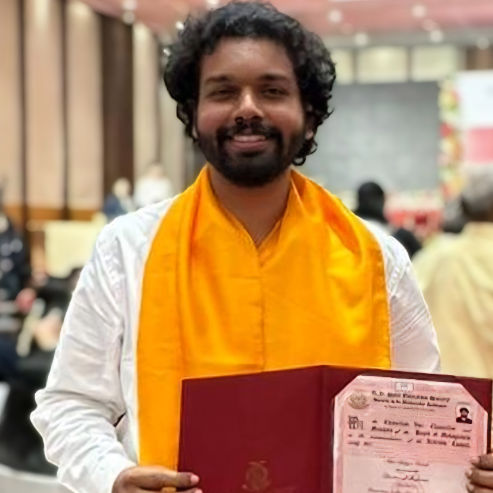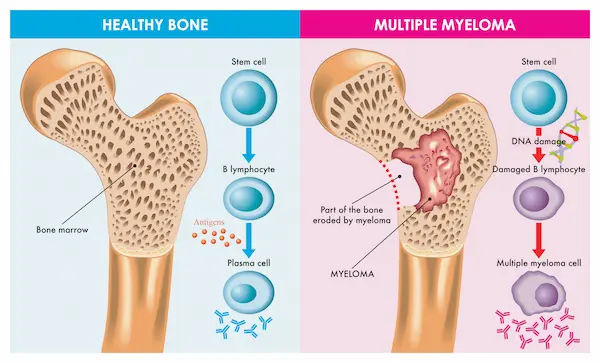Mood Disorders Overview and Treatment Options
Know about mood disorders, including depression and bipolar disorder. Learn about their symptoms, causes, and explore treatment options to effectively manage emotional health and improve quality of life.

Written by Dr. Rohinipriyanka Pondugula
Reviewed by Dr. J T Hema Pratima MBBS, Fellowship in Diabetes Mellitus
Last updated on 13th Jan, 2026

Introduction
Mood disorders are a group of mental health conditions that affect a person’s emotional state, leading to prolonged periods of extreme happiness, sadness, or fluctuations between the two. These disorders can significantly impact daily life, relationships, and overall well-being. If you or someone you know is struggling with mood swings, depression, or unexplained emotional highs and lows, understanding these conditions can help in seeking the right support and treatment.
What Are Mood Disorders?
Mood disorders are mental health conditions that primarily affect a person’s emotional state. The most common types include:
1. Major Depressive Disorder (MDD): Persistent sadness, hopelessness, and loss of interest in activities.
2. Bipolar Disorder: Extreme mood swings between depression and mania (elevated mood, high energy).
3. Persistent Depressive Disorder (Dysthymia): A long-term, less severe form of depression.
4. Seasonal Affective Disorder (SAD): Depression triggered by seasonal changes, usually in winter.
5. Premenstrual Dysphoric Disorder (PMDD): Severe mood swings before menstruation.
Consult a Psychiatrist for the best advice
Common Symptoms of Mood Disorders
Symptoms vary depending on the type of disorder but may include:
Depressive Symptoms:
Persistent sadness or emptiness
Loss of interest in hobbies
Fatigue and low energy
Changes in appetite or weight
Difficulty concentrating
Feelings of guilt or worthlessness
Thoughts of death or suicide
Manic Symptoms (Bipolar Disorder):
Extreme happiness or irritability
Racing thoughts and rapid speech
Decreased need for sleep
Impulsive or risky behavior
Overconfidence or grandiosity
What Causes Mood Disorders?
The exact cause is not fully understood, but several factors contribute:
Genetics: Family history increases risk.
Brain Chemistry: Imbalances in neurotransmitters (serotonin, dopamine).
Hormonal Changes: Thyroid issues, pregnancy, or menopause.
Stress & Trauma: Major life changes, grief, or abuse.
Medical Conditions: Chronic illnesses like diabetes or heart disease.
How Do Mood Disorders Affect Health?
Untreated mood disorders can lead to:
Difficulty maintaining relationships
Poor performance at work or school
Increased risk of substance abuse
Physical health problems (heart disease, weakened immunity)
Higher risk of self-harm or suicide
Treatment Options for Mood Disorders
The good news is that mood disorders are treatable. A combination of therapies can help manage symptoms effectively.
1. Psychotherapy (Talk Therapy)
Cognitive Behavioral Therapy (CBT): Helps change negative thought patterns.
Interpersonal Therapy (IPT): Focuses on improving relationships.
Dialectical Behavior Therapy (DBT): Helps regulate emotions.
2. Medications
Antidepressants (SSRIs, SNRIs): For depression and anxiety.
Mood Stabilizers (Lithium): For bipolar disorder.
Antipsychotics: For severe mania or depression.
Always consult a doctor before starting or stopping any medication.
3. Lifestyle Changes
Regular Exercise: Boosts mood through endorphins.
Balanced Diet: Omega-3s, whole grains, and proteins help brain health.
Sleep Hygiene: 7-9 hours of quality sleep is essential.
Mindfulness & Meditation: Reduces stress and improves emotional regulation.
4. Support Groups & Social Connection
Talking to others with similar experiences can provide comfort and coping strategies.
When to Seek Help?
If mood swings, sadness, or emotional highs and lows interfere with daily life for more than two weeks, it’s important to seek professional help. Early treatment leads to better recovery.
How Apollo 24|7 Can Help?
If you or a loved one is experiencing symptoms of a mood disorder, Apollo 24|7 offers:
Expert consultations with psychiatrists and therapists
Personalized treatment plans
Online therapy sessions for convenience
Lab tests to rule out underlying conditions
You can book a consultation or schedule a test easily through the Apollo 24|7 app or website.
Final Thoughts
Living with a mood disorder can be challenging, but with the right treatment and support, recovery is possible. If you recognize these symptoms in yourself or someone you care about, don’t hesitate to reach out for help. Mental health is just as important as physical health, and seeking support is a sign of strength, not weakness.
Consult a Psychiatrist for the best advice
Consult a Psychiatrist for the best advice

Dr. Ankit Halder
Psychiatrist
7 Years • MBBS, MD (Psychiatry)
Kolkata
MCR SUPER SPECIALITY POLY CLINIC & PATHOLOGY, Kolkata

Dr. Debdatta Pati
Psychiatrist
18 Years • MBBS, DPM, MD (PSYCHIATRY)
Kolkata
MCR SUPER SPECIALITY POLY CLINIC & PATHOLOGY, Kolkata

Dr. Sarath Bodepudi
Psychiatrist
11 Years • M.B.B.S, M.D. (Psychiatry)
Visakhapatnam
Apollo 24|7 Clinic - Andhra Pradesh, Visakhapatnam

Dr Rohit Ranjan
Psychiatrist
10 Years • MBBS, MD (Psychiatry)
Bengaluru
Apollo Medical Center, Marathahalli, Bengaluru
(25+ Patients)

Dr. Aditya Nair
Psychiatrist
5 Years • MBBS, MD (Psychiatry)
Bansdroni
Siddhita Healthcare., Bansdroni




